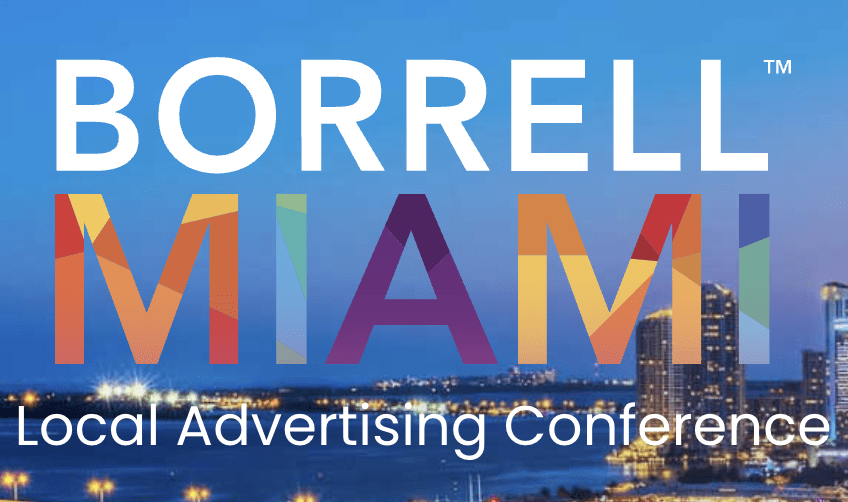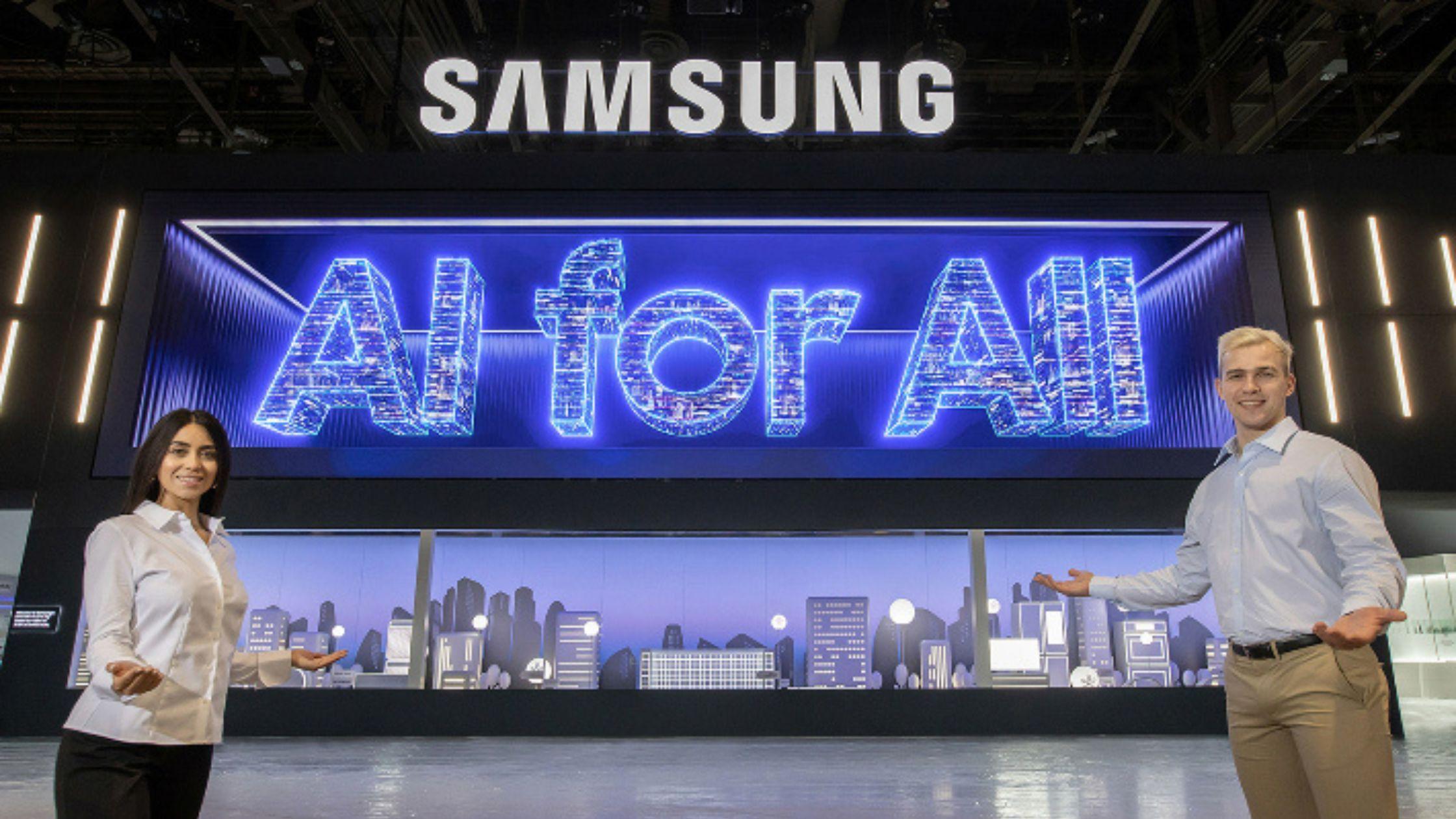
I first encountered Gordon Borrell while attending a Saga Communications programmers meeting in the early 2000s. I knew from the jump he was someone we had to have at our next Jacobs Summit. If you’ve been in the business for at least a couple decades or more, you know about those Summits, which started as Alternative gatherings, later expanded to Rock, and eventually were left wide open to anyone and everyone in the radio business.

Over the years, we had some remarkable speakers and guests – including Little Steven, Nikki Sixx, Lawrence O’Donnell, Harry Shearer, Lee Abrams, Tom Asacker, Ben McConnell, Gary Shapiro, and a host of authors, thought leaders, and technology up-and-comers with a story to tell. Jacobs Summits were always free, attached to something else – a Gavin, R&R, or NAB Radio Show.
Gordon spoke at more than one of our Summits. But I remember that first one well. He was speaking about one of his favorite topics – local digital revenue – at a time when many in radio huffed and snorted about the incoming dollars that didn’t emanate from the tower or transmitter. Gordon was always a bold and brutally honest speaker, asking why the newspaper and TV businesses were quicker to realize the potential of local digital revenue than radio.

We’ll never know how many dollars were left on imaginary tables, especially during the first decade of this century – but it had to be a lot. Back then, many in radio had to be convinced that consumers streamed music, carried around iPods, or were beginning to buy those smartphones and what that innovation would mean to the world. All the while, Gordon was dropping bread crumbs and diagramming plays.
It wasn’t long before he started throwing his own conferences – and his aren’t free. They are always about strategic and financial opportunity. And they are meaty. I’ve been honored to be on the Borrell Associates stage, and his attendees are always smart, hungry media execs, eager to figure out what’s next and how to get after it.
That’s why our newest employee at Jacobs, Chris Brunt, was on hand in Miami last week. As you’ll read in Chris’ guest post today, the topic of AI was front and center. And why![]() not? We’ve got to figure this thing out.
not? We’ve got to figure this thing out.
Chris has started a newsletter for us, the AI Edge, that’s all about this new technology and what it means to radio. If today’s post stimulates you to learn more about the opportunities presented by AI, make Chris’ well-crafted newsletter part of your regimen. It is written and produced with an eye on our business, and how the technology can enhance what we do. It’s free and you can access it here. – FJ
The Unstoppable Rise of AI: Notes from Borrell Miami 2024
By Chris Brunt
As an “explainer” for those unfamiliar with Gordon Borrell and Borrell Associates, their extensive research offers valuable insights into local advertising expenditures and emerging trends. Borrell surveys local advertisers from traditional media companies nationwide, gathering detailed data on the business’ spending across all media, including digital. These advertisers provide insights on their ad spending habits, views on different media, interactions with media reps, opinions on AI, and future spending intentions. Analyzing this extensive data culminates in the comprehensive reports Borrell is known for.
The company believes in data to outline and scope out revenue opportunities on the local level. As national advertising expenditures in radio have drastically shrunk over the past several years, tapping into reservoirs of local dollars our industry desperately needs was a through-line during this two-day conference. So, what can Borrell Associates’ research tell you?
With your market’s specific report, for example, your sales team can answer questions like these:
• “How much are hospital groups spending in your market on OTT?” (More than you think.)
• “What percentage of small business advertisers go DIY and never interact with a media rep?” (Again, more than you think.)
• “What percentage of big ad spenders currently use AI?” (Yup, more than you think.)
Used properly, this data drives strategy from the C-Suite to the CNA.

The latest survey’s big-picture results were presented last week at the Borrell Miami conference. They dove-tailed tightly with the general thesis of the conference’s keynote speakers: AI is starting to change everything, and the rate of change is only accelerating. In fact, chew on this:
AI is rapidly having a transformational effect on the media business

Consider this recent quote that’s been floating around x.com for the last couple weeks and was highlighted at Borrell Miami. OpenAI CEO Sam Altman is pretty frank about the degree of change coming to our industry:
“(As we approach artificial general intelligence), 95% of what marketers use agencies, strategists, and creative professionals for today will easily, nearly instantly and at almost no cost be handled by the AI — and the AI will likely be able to test the creative against real or synthetic customer focus groups for predicting results and optimizing. Again, all free, instant, and nearly perfect. Images, videos, campaign ideas? No problem.”
If that sounds like a sweeping change over the status quo of how advertising and marketing has been traditionally carried out – even during the past five years – well, it is.
OK, and now try this one on:
Media companies should strategically embrace AI for all employees
Because AI is so good at concepts that are core to broadcasters — like content generation and data analysis — its adoption is moving exceptionally quickly by advertisers, agencies, and media companies. Media companies should go beyond mere AI usage policies restricted by IT or legal concerns; they must adopt comprehensive strategies that reflect their core mission and values while addressing potential job disruptions from AI.
It is simply not just about a bot on the air replacing air talent jobs, although the topic of how AI will be used on the radio, in production, and for voice work on imaging and advertising will continue to be a core topic in JacoBLOG and our AI Edge newsletter. It IS about AI’s sweeping effects on our total operations.
 Our team saw this first-hand at CES in January, as virtually every company exhibiting in Las Vegas trotted out their best AI use cases. Here was our big takeaway: Businesses, platforms, and organizations need to step back and view their operations, their M.O.s, and their entire architectures through the AI lens.
Our team saw this first-hand at CES in January, as virtually every company exhibiting in Las Vegas trotted out their best AI use cases. Here was our big takeaway: Businesses, platforms, and organizations need to step back and view their operations, their M.O.s, and their entire architectures through the AI lens.
Job skills that will be needed will dramatically change in the next five years – and AI is the change agent that will power this change. Therefore, all employees should be provided training resources for a new expectation they need to achieve some level of aptitude and competence with AI. This technology may be that once-in-a-career opportunity to bring low achievers to the middle, and middle-achievers to the top. Companies could potentially achieve massive efficiencies and productivity with AI, but this requires substantial investments in both time and resources by the employees and the employer.
Historically in the radio business, training and knowledge have been handed down from one generation to the next – like folklore and family stories. That won’t cut it here.
Companies that fail to fully and holistically adopt AI risk falling behind competitors who will be more efficient and responsive to market changes in their local ad markets.
There is an acute need for AI leadership in all businesses

Borrell speaker Paul Roetzer of the Marketing AI Institute (a rich source BTW) summarized the problem the best:
“Generally speaking, leaders in our government and our educational systems and our businesses have not even a baseline understanding what AI actually is.”
Is it that any different in our business? How many of the people you work next to, directly manage, or report up to know their way around ChatGPT, are aware of new developments such as the amazing text-to-video phenomena, Sora (shown below) and are thinking every day about how AI can be directly applied and utilized in our core business – and what’s around the corner?
Companies must cultivate AI leadership internally, regardless of formal titles. Should you aspire to be an AI leader, be prepared to commit to deeply understanding the technology, possibly seeking “education” and training on your own. Consider how to enhance your department or company with AI. Familiarize yourself with tools like ChatGPT, Gemini, and Claude. Integrate AI into everyday tasks and persist through the learning curve to find successful applications within your organization.
Inside just about every organization and company you can think of, there’s an AI leadership gap – and therefore, a gaping opportunity. Who’s going to be the person to fill it? And the good news? If you aspire to be that person, the skills, training, hacks, and tricks of the trade are transferrable if you’re a victim of the next round of RIFs. You can walk those highly marketable skills across the street, across the globe, or invested in the development of your own enterprise if you’ve got the desire, the drive, and the mojo to step out on your own.
As Roetzer concluded in his keynote:
“The biggest companies in the world don’t know what they’re doing. They don’t have people internally who can figure this stuff out. And so you can become that change agent.”
A scary thought? You bet. But it’s also a challenge to everyone working in an organization to become the agent of change. There aren’t many opportunities during the course of a career when a tsunami of this magnitude sweeps through the show shebang. Seizing that moment could become that smart career decision you’ve been pondering and you could add value to your employer in nanoseconds, while improving your position in the organization in the process.
magnitude sweeps through the show shebang. Seizing that moment could become that smart career decision you’ve been pondering and you could add value to your employer in nanoseconds, while improving your position in the organization in the process.
How will AI change radio org charts that virtually haven’t changed in more than a half century? What skills and talent cannot be duplicated by AI, but which jobs can be enhanced and made more essential? What new hires will have to be made? And sadly, who will be left by the wayside?
If, as Roetzer avers, some of the top players in the world are flailing around or not even wise enough to ask these powerful questions, your company needs to. The answers not only will position your organization for the next go-round, they will also assure your board members, your investors, and your own employees that you’re playing the long game.
AI is merely another boxcar in the growing train of existential threats radio has faced over the last century. Radio broadcasting has survived the introduction of “talkies,” television, the 8-track car stereo, MTV, the Walkman, satellite radio, and internet pureplays. Just as the industry eventually adapted to each of these monumental changes – often kicking and screaming – it must now embrace AI and pivot once more and see it as the opportunity that it is.
In the case of some of this revolutionary change, radio has managed to adapt. Almost every station is now on the worldwide web, streams their audio content, makes it available on-demand, and sees their app on smartphones and dashboards. Each of these shifts required vision, investment, and the courage and proactivity to seize the moment.
It is ultimately a healthy process, but that doesn’t make it easy.
In fact, it’s hard. And that’s why most people will blow off the opportunity and go back to the repetitive motion of what they were already doing.
Will you?
Chris Brunt has emerged as a leading voice of AI’s potential for broadcasters. If you would like Chris to speak at a convention, a company meeting, or work with your station on developing an AI strategy, contact Paul Jacobs at [email protected]
And as a part of our AI initiative, Chris has created a free newsletter, AI Edge, geared toward broadcasters every Thursday. Click here and complete the form to subscribe.
- Evolution - May 9, 2025
- It’s Not the AI, It’s the Cover Up - May 2, 2025
- This Is the Worst AI You’ll Ever Use - April 11, 2025




Chris- great recap and overview!
This is one of those pivotal moments in local media, just like digital ~20 years ago. It’s ‘disrupt or be disrupted’. I hope local media companies will not look past the mark this time and will embrace the disruption and develop the needed transformation to survive and thrive.
This may well be Transformation C (AI) to Transformation B (digital), like Transformation B was to Transformation A (traditional). Time will tell.